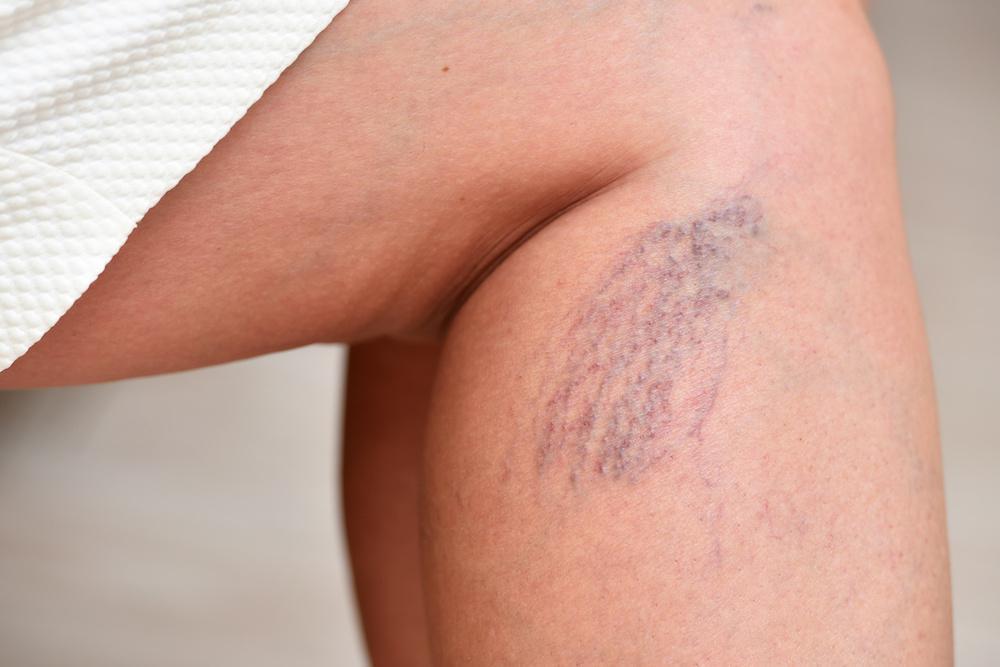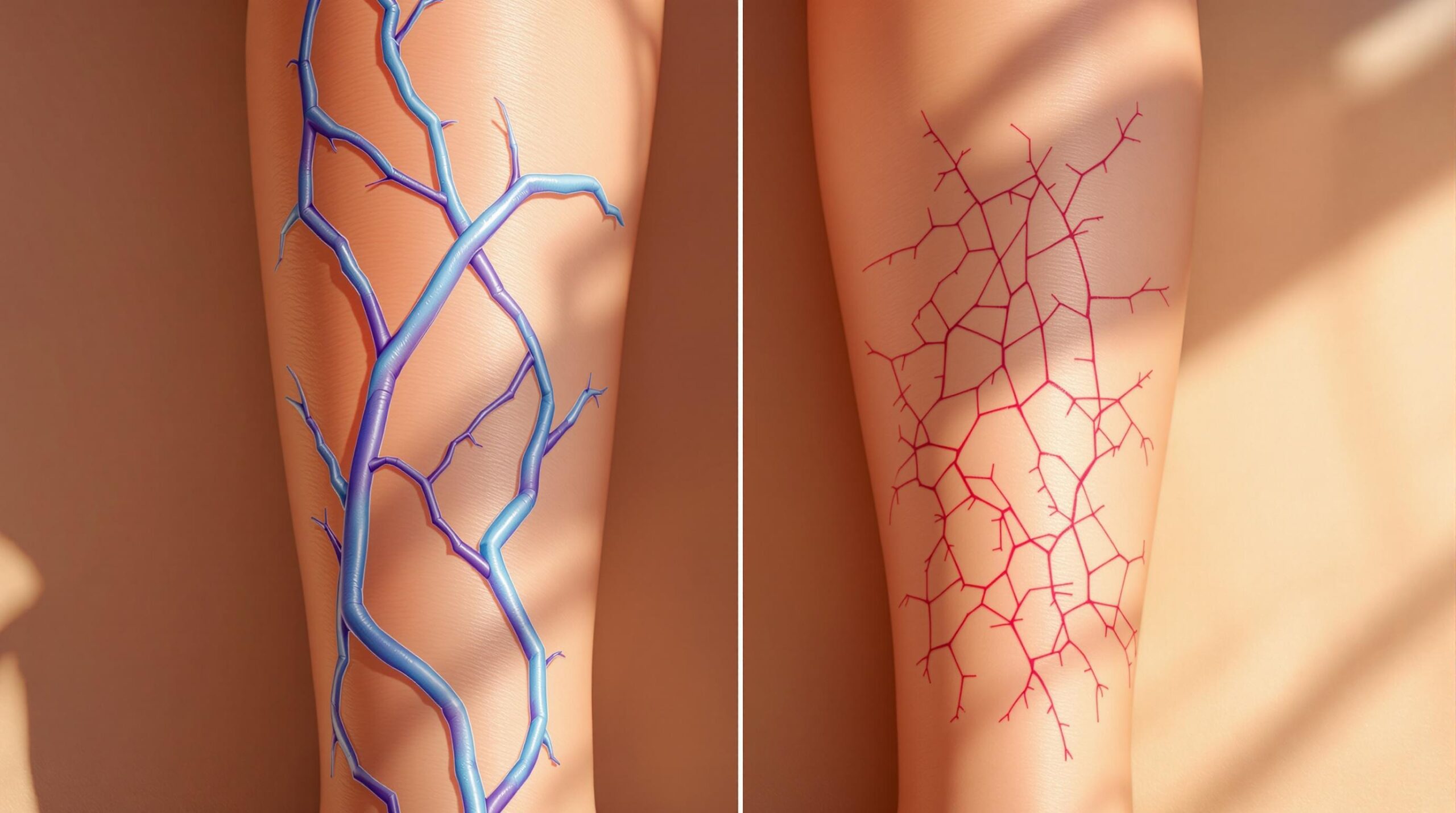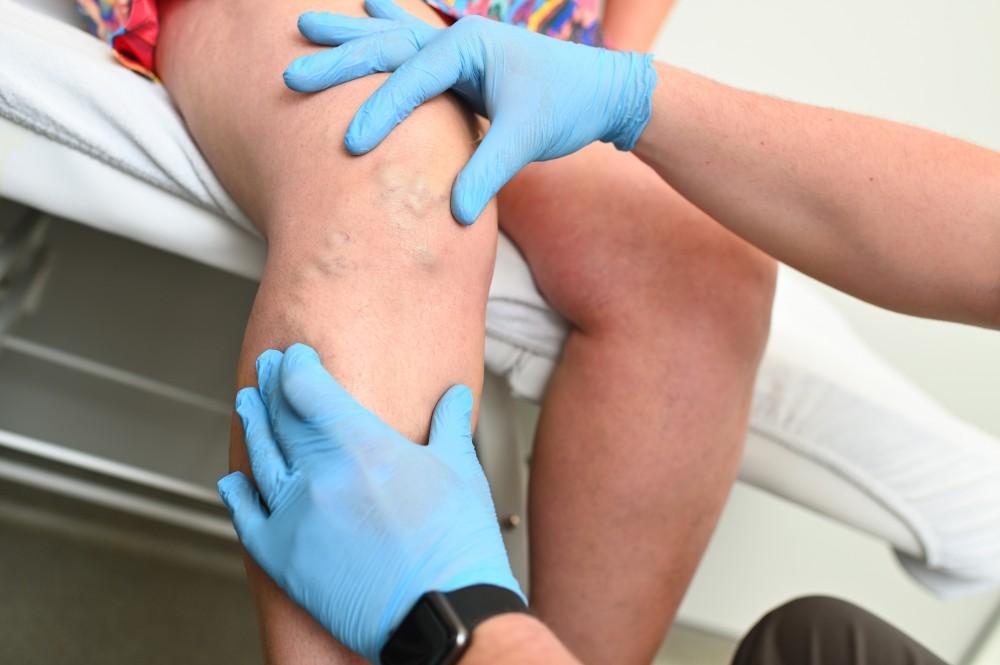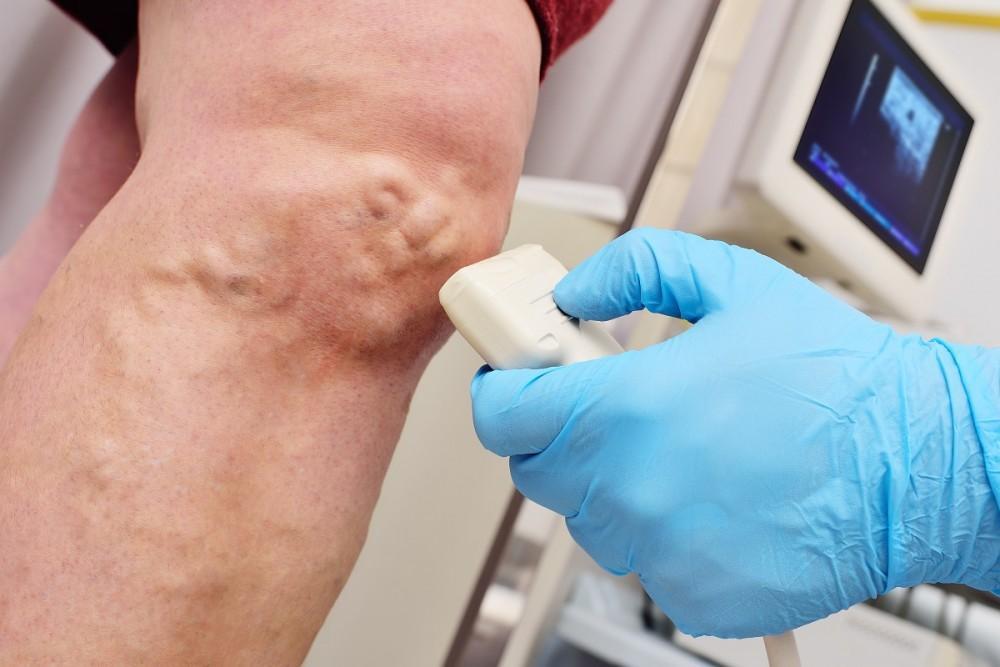By themselves, spider veins won’t usually pose any direct risk to your health. However, they can indicate other health problems that may need to be addressed. Below is some information about spider veins and how they affect your overall health.
What are spider veins?
Spider veins are dilated veins that can be seen under the skin. They usually appear in web-like formations, and they may be blue, red, or purple in color. Although they are easily visible, they do not cause the skin to bulge like a varicose vein does. These veins can develop in almost any location on the body, but they are most common on the face, chest, and legs.
In most cases, spider veins won’t cause any symptoms aside from their appearance. However, some people with spider veins may notice tingling, burning, or achiness. Discomfort related to abnormal veins is more common when these veins are in your legs.
What causes spider veins?
Spider veins usually develop when the valves in the veins are no longer functioning like they should, which causes blood to pool and veins to dilate. The same problem causes varicose veins, which are larger abnormal veins.
Spider veins and your health
Spider veins don’t cause any health risk on their own in most cases, even if they are left untreated. However, the development of spider veins may signal the presence of other problems that do pose a risk to your health. For example, if you have spider veins, you may be more likely to get varicose veins. Varicose veins can sometimes ulcerate, leading to infections and other issues. Spider veins are also more common among people who have other health conditions, such as obesity.
In addition, if you have spider veins along with other conditions, you may be more likely to develop specific vein-related complications. For example, if you have diabetes and abnormal veins, you may be at a higher risk of deep vein thrombosis, which is the development of blood clots. These clots usually appear in the legs and can be life-threatening without the right treatment.
Treating spider veins
Even though spider veins don’t pose a significant health risk for most people, you may still want to treat them for your own comfort. Please contact Rishin Shah, MD at Prime Heart and Vascular today to learn about your spider vein treatment options. You can also request an appointment through our online booking tool.





